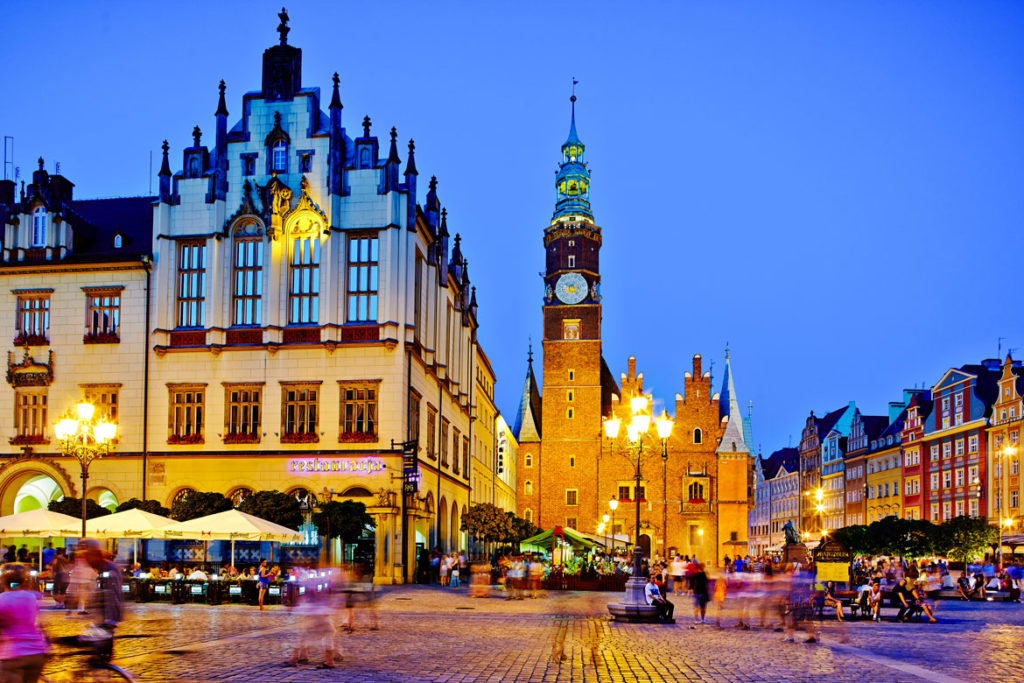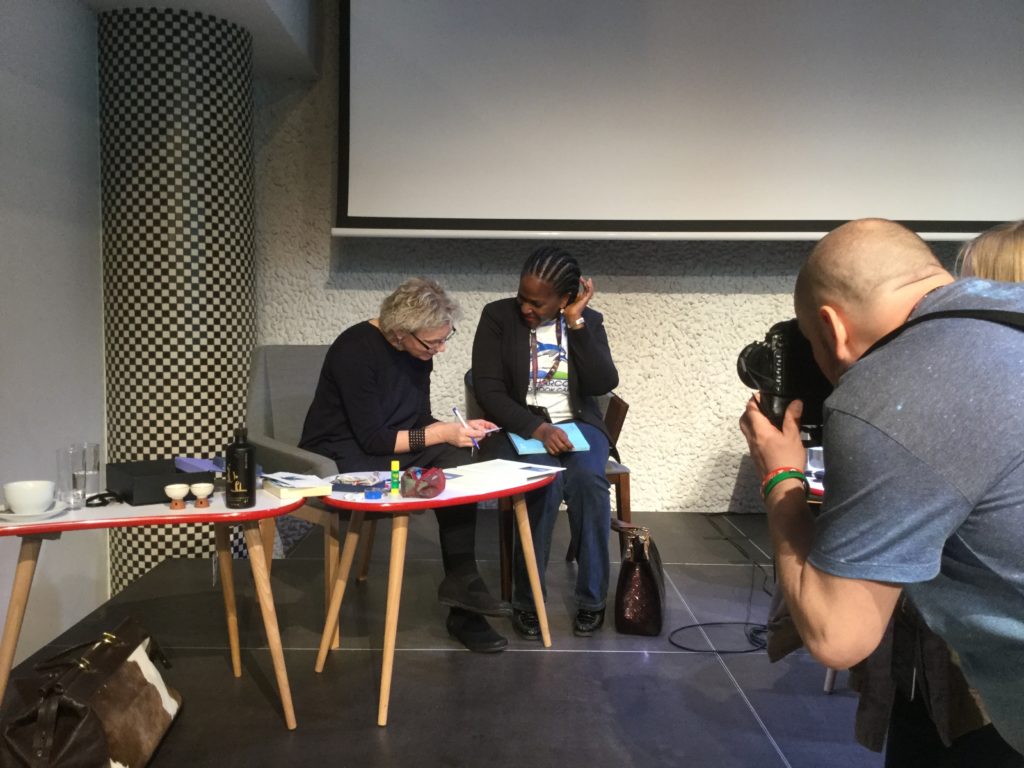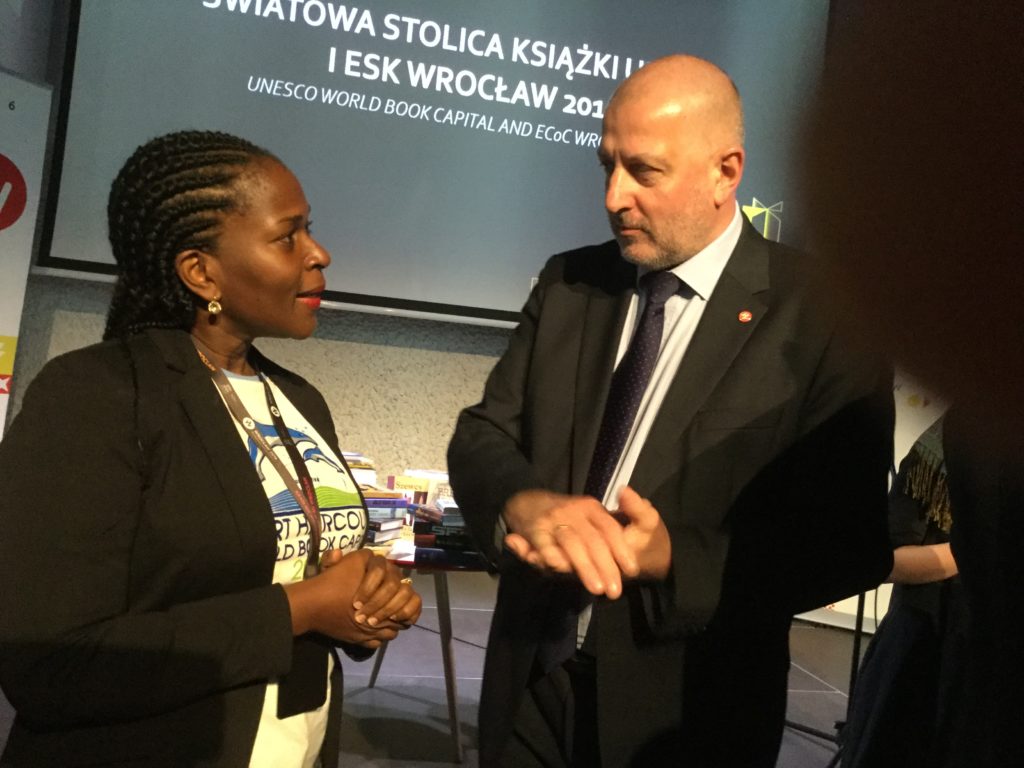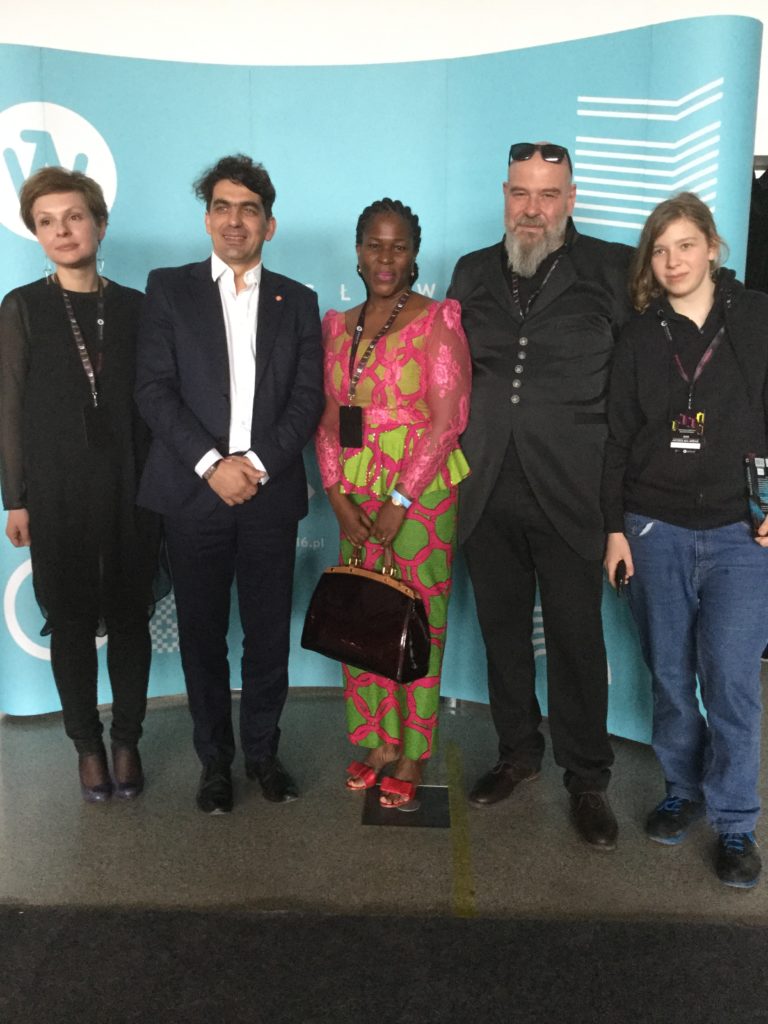At the foot of the Sudety Mountain and on the Oder River, seats Wroclaw, one of Poland’s oldest and most beautiful cities. Wroclaw has twelve islands, one hundred and twelve bridges and a population of almost 636,000 people. ‘The rich, stormy history of the city is inscribed in its walls’ someone wrote, citing the Cathedral Island, The Old Town Hall and the Centennial Hall, a UNESCO World Heritage site.

2016 would remain a special year in the life of Poland’s fourth largest city, for in this year Wroclaw was the European Capital of Culture (ECoC) as well as the UNESCO World Book Capital (WBC).’
Friday April 22nd
Vivian and I were met, upon arrival at Wroclaw Airport around noon, by Zbysko, a friendly and able young man who served as our first chaperon. He accompanied us in a mini bus to our hotel. I mentioned to our hosts that the closely built buildings in the environs of the Main Market Square around our hotel, that give out the feel of one big community, reminds me of Venice, Italy. I was informed that Wroclaw is known as the Venice of the North. The Art Hotel, where we are lodged, has the irresistable signature of centuries-long European architecture that seems to grow more graceful with age.
Later today we were special guests at a Korean Evening with eminent Polish illustrator Iwona Chmielewska. On this occasion, the Polish version of Maum – A House of the Mind, written by Korean author Kim Heekyoung, was presented to the public. The collaboration on this book by two talented minds from Korea and Poland is symbolic as Wroclaw, Poland, takes over from Incheon, South Korea, as World Book Capital, tomorrow.
We rounded off the evening at the Proza Café, Wroclaw Literature House, where we attended a ‘Night of Ukrainian Poetry and Music NON STOP’. We were treated to multimedia music and poetry performance by young Ukranian poets with DJs providing back ground music.

Saturday April 23rd
Today is actually World Book and Copyright Day, when one World Book Capital City hands over to the other. This morning there was a world press conference where the planned programmes for Wroclaw’s tenure where presented to the audience by Wroclaw Major Rafal Dutkiewicz and author Irek Grin, who is the curator of the ECoC as well as WBC 2016. In attendance were diplomats, representatives of World Book Capital cities, key officials of the Wroclaw government and ofcourse the press.
This afternoon we were at the Capitol Music Theatre, for a conversation with Jo Nesbo, the legendary Norwegian crime fiction writer. This is a very special outing indeed as we understand it is the author’s only meeting with his readers this year. The line for autographs reached into the streets.
Later this afternoon we were at the opening of the Pan Tadeusz Museum, housed in two 17th century houses in the Main Market Square. Pan Tadeusz, Poland’s national epic, is a poem written by the philosopher Adam Mickiewicz. It was first published in 1834 and inspired Andrzej’s 1999 movie bearing the same name. This poem is compulsory reading in Polish schools. The tour allowed us a premier viewing of the manuscripts of the Pan Tadeusz as well as a multimedia exhibition of Polish history and culture.
This evening we attended three out of ten readings taking place around the city. Celebrities read from Shakespeare’s works on this day that commemorates 400 years since he died. We chose to attend readings in places that were significant to the history of the city such as the University of Wroclaw whose hall must have been a church, reminding us of Poland’s Christians heritage which can be traced to the Baptism of Poland, around 966, when it’s first ruler, Mieszko converted, along with his court members through the influence of his wife, Dobrawa of Bohemiah.

Sunday April 24
This afternoon, we followed a guided tour of the Centennial Hall, which was designed by Max Berge and constructed in 1913. In 2006 this building was enlisted as a UNESCO World Heritage. We then walked over to the Discovery Centre which is just by the Centennial Hall for a gala to mark the formal handover ceremony from Incheon to Wroclaw World Book Capital 2016. It was well attended by representatives of other World Book Cities; Port Harcourt (2014), Incheon (2015) Conakry (2017), diplomats and government officials.
After this highlight we took a tram ride to the National Forum of Music (NFM) for the Singing Shakespeare concert. The NFM Choir sang in English from As You like It, The Merchant of Venice, Hamlet, Sonnet 3 and Macbeth. Agnieszka Frankow-Zelazny conducted the choir and Tomasz Lulek read poems.

Monday April 25
Having enjoyed the hospitality of the polish people and two other pleasant chaperons; Anna and Alice, we were all set to depart this land of over 300 dwarf statuettes. The statuettes that dot the landscape of the city stand as a memorial to the Orange Alternative, an anti-communist movement in Poland. The first of the dwarf statues was erected in 2001 in the Swidnicka Street where the Orange Alternative members used to meet. In 2005, Another 5 where placed in different parts of the city. Over the years the numbers grew and the dwarf statuettes have now become a symbol of new ideas as well as a tourist attraction in Wroclaw.
We left the Art Hotel early this morning to catch our flight to Frankfurt and onward to Lagos from where we would pick a local flight back home to Port Harcourt, World Book Capital 2014.

